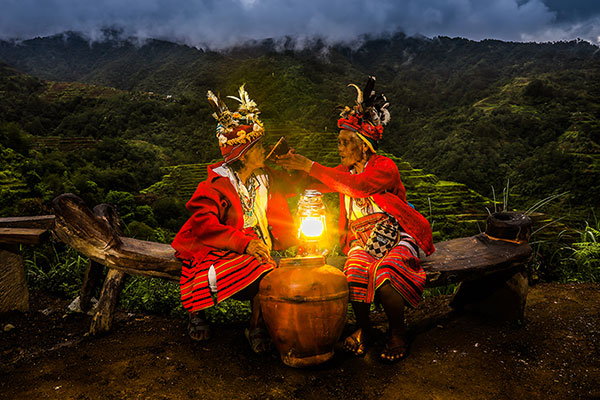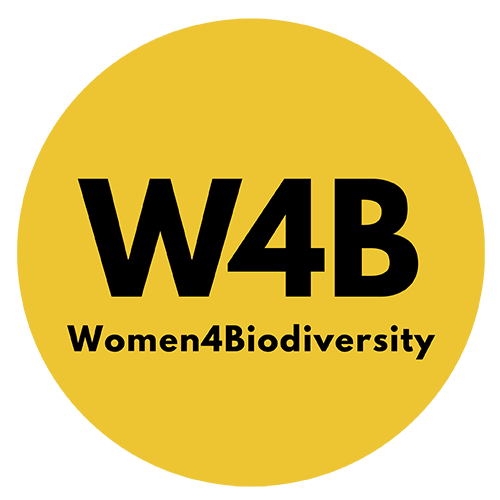Text by Sumina Subba, Communications Officer, Women4Biodiversity
Photos by Sumina Subba and Deepika Nandan, Visual Communications Officer, Women4Biodiversity
“I can’t believe how fast these five days have passed!”, exclaimed Ivannia Ayales while chatting informally over lunch. Ivannia had flown for more than 24 hours from Costa Rica to Nairobi to attend the Writeshop along with five other partners representing the restoration sites and from different time zones. For some of them, this was the first time meeting each other.
From 27th July to 3rd August 2024, Women4Biodiversity hosted a transformative writing workshop titled, “Restoration Site Writeshop” in Nairobi, Kenya. This workshop brought together partners from six women-led restoration sites being supported by Women4Biodiversity under the “Building Resilience and Weaving Gender-responsive Approaches to Biodiversity Governance” project. This Project began in late 2021 to strengthen gender-responsive ecosystem restoration approaches into national goals and international commitments through research and documentation of women-led ecosystem restoration initiatives.
The restoration sites are located in Asia, Africa, Latin-America and the Pacific.
| Countries | Ecosystems | Restoration Areas | Restoration Site Partners |
|---|---|---|---|
| Argentina | 1. Wetlands 2. Degraded Dune Areas |
1. Paraná city, Entre Rios province 2. Mar Grande Beach, San Antonio Oeste, Rio Negro Province, Argentinean Patagonia |
1. Fundación Ambiente y Recursos Naturales (FARN) and FUNDACIÓN CAUCE 2. FUNDACION INALAFQUEN (FI) |
| Cameroon | Coastal Wetland | Londji Area | The African Women’s Network for Community Management of Forests (REFACOF) |
| Costa Rica | Mangroves | Chomes community, Puntarenas Providence | Cooperativa Autogestionaria de Servicios Profesionales para la Solidaridad Social (CoopeSoliDar R.L) and Coopemoluschomes R.L. Costa Rica |
| Kenya | Forest | Kamatira, West Pokot | Pastoral Pastoral Communities Empowerment Programme (PACEP) |
| Myanmar | Forest (Documenting ethnobotanical species) | Kheshorter Community Forest | Karen Environmental Social Action Network (KESAN) |
| The Solomon Islands | Forest | Hageulu community in Gao district, Isabela Province | Network for the Indigenous Peoples Solomons (NIPS) |
Over the course of five intensive days, participants presented the case studies of their unique restoration sites, exchanged insights and common learnings, exchanged cultural knowledge, and collaborated on future plans to amplify women’s voices in ecosystem restoration and biodiversity conservation. Their stories and experiences further corroborated the need to recognise and respect women’s knowledge and contribution to biodiversity conservation.
Women4Biodiversity organized this writing workshop with the support of Fundación Ambiente y Recursos Naturales (FARN) and SIDA Funding through SwedBio at the Stockholm Resilence Center at the Stockholm University.

Day 1: Spotlight on Costa Rica, Myanmar and Kenya
The workshop began with a deep dive into individual case studies from three diverse regions: Ivannia Ayales from CoopeSoliDar R.L. talked about the mangrove restoration spearheaded by the women in Chomes in Costa Rica despite the cultural and systematic challenges on the ground such as not being taken seriously being a woman or not being able to run a motor boat due to bureaucratic technicalities. Despite these challenges, their efforts are been recognised by the government and they even won an award in May 2024! Charlotte Clare from KESAN explained the unique challenges faced by the indigenous community protecting the Kheshorter Community Forest in Myanmar. Rodah Rotino from PACEP talked about how the ingenious methods implemented by the women is inspiring the community to partake in the restoration of the Kamatira Forest in Kenya.
These stories showcased the importance of the ecosystems, the challenges in conservation (some that are beyond their control), and how women are fearlessly leading restoration efforts in their communities dealing with these unique challenges. The day was filled with rich discussions on the different approaches, methods, and outcomes observed at each restoration site, setting the stage for a week of learning and collaboration. This day ended with exchange of gifts too!

Day 2: Exploring Case Studies from Cameroon, Argentina and the Solomon Islands
The second day shifted focus to case studies presented by Blondine Benga from REFACOF talked about how women are leading the coastal wetlands/mangrove restoration in Londji, Cameroon and how these ground-level initiatives are slowly catching the interest of the wider-community. Laura Lapalma from FARN talked about the importance of sand dunes for various migratory bird species and how women are voluntarily investing their time to save these delicate ecosystems in the Argentinean Patagonia. James Meimana from NIPS talked about the cultural significance of the Tubi trees in the Hageulu community and how the community women play a distinct role in every decision-making process such as community consultations in the Solomon Islands.
All of these narratives shared in the first two days highlighted the intersection of gender, culture, and environment, offering valuable lessons on how women-led restoration efforts can benefit the community and the whole of society. Their efforts deserve recognition not only within the community but also at the governmental level.
The day concluded with key reflections, where participants identified common themes and challenges across all the case studies, fostering a deeper understanding of global restoration dynamics.

Day 3: Communication Strategies and Collaborative Creativity
On Day 3, the workshop pivoted towards the critical role of communication in restoration efforts. Participants engaged in creative exercises to discuss the incorporation of gender in the design of their restoration process and strategies employed for effectively conveying their messages to diverse audiences. A major learning of the day was that not everyone relies on social media alone for information dissemination. In some cases, prints and publications are the suitable option. The partners also shared about their practical limitations in communications such as expensive internet (USD 100 for 1 hour usage) in the Solomon Islands, and limited access to the internet in Cameroon that cannot be ignored.
A significant outcome of this day was the decision to collaborate on developing a technical guide on the importance of integrating gender-responsiveness in the restoration process, which will serve as a resource for other restoration professionals worldwide.

Day 4: Risk Mitigation and COP16 Preparations
The fourth day was dedicated to risk mitigation and impact assessment exercises, where participants applied the living spiral framework, which is a dynamic approach used in environmental and social projects to assess and manage risks, impacts, and ongoing progress. This hands-on activity helped them visualise the importance, challenges and solutions of their work. The day also included discussions on preparations for the upcoming COP16, emphasizing the importance of ensuring women’s voices are heard during this crucial global environmental negotiations.

Day 5: Reflections and Farewells
The final day of the workshop was a time for personal reflections and heartfelt goodbyes. Participants shared their key takeaways from the week and expressed their appreciation for the collaborative spirit that had defined the workshop.
The bonds formed over songs, jokes and laughter, and the knowledge exchanged will undoubtedly strengthen this network that is leading restoration efforts, creating a ripple effect that extends far beyond Nairobi.

Common Threads
Over the five days, the following some of the common themes that emerged from the stories across the six restoration sites,
- Biodiversity loss is occurring at a high speed and women are still not considered as the main agents of change. The main hurdle for women is that they are overloaded with unpaid domestic work and responsibilities.
- Gender roles hinder women’s growth as it is often to difficult to challenge patriarchy, gender roles and stereotype at the local level.
- Restoration is a process that cannot be defined by a number of years. Long-term funding is crucial for assessing successful and meaningful impacts of restoration.
- Traditional Ecological Knowledge (TEK) should be the basis for all environmental policies as this knowledge has lasted the test of time within the communities. Intergenerational transfer of knowledge should be encouraged.
- Not all restoration process will be same or face similar challenges, complex scenarios require creative strategies.

What’s next?
The Writeshop was an opportunity to share stories and foster global connections to build collective learning and understanding of the overall women-led restorations at a global level. It served as a platform to build a shared vision for the future of the restoration process for the partners. As participants return to their respective countries, they carry with them not just new skills and insights, but a renewed commitment to the vital work of restoring biodiversity, one story at a time.
What started in cordial “hellos” ended in warm hugs and “stay in touch”. Below is a beautiful poem by Charlotte that captures the essence of the Writeshop.
women for biodiversity
In a world of greed and violence
Us women we share
We feed each other
We know the power of our attention
Before we shoot for the stars;
We must sink lower
into the subterranean,
In the soils holding life and death
connecting energies,
from our histories and futures
building from the root
Nurturing the shoots of community
This is hard work
This is joyful work
This is what it means to
take a seed of love
and grow it to infinite depths.
Charlotte Clare,
2 August 2024, Nairobi, Kenya
All case studies presented by the partners and the summary report of the Project will be available on Women4Biodiversity’s website before COP16. Updates will be sent via social media and mailing list when they are up. Don’t forget to subscribe to receive the timely updates!

About the author

Sumina is a communications professional with more than six years of experience working in both development organisations and the private sector. She grew up in a house where there were more books than any other treasures. As a result, her affinity towards words began at an early age. A storyteller by heart, she loves to combine her passion for human rights with storytelling through visual media that showcases human-interest stories. Sumina is a former Open Society Foundation / University of Essex scholar and holds a MA degree in Human Rights and Cultural Diversity from the University of Essex, the UK.


